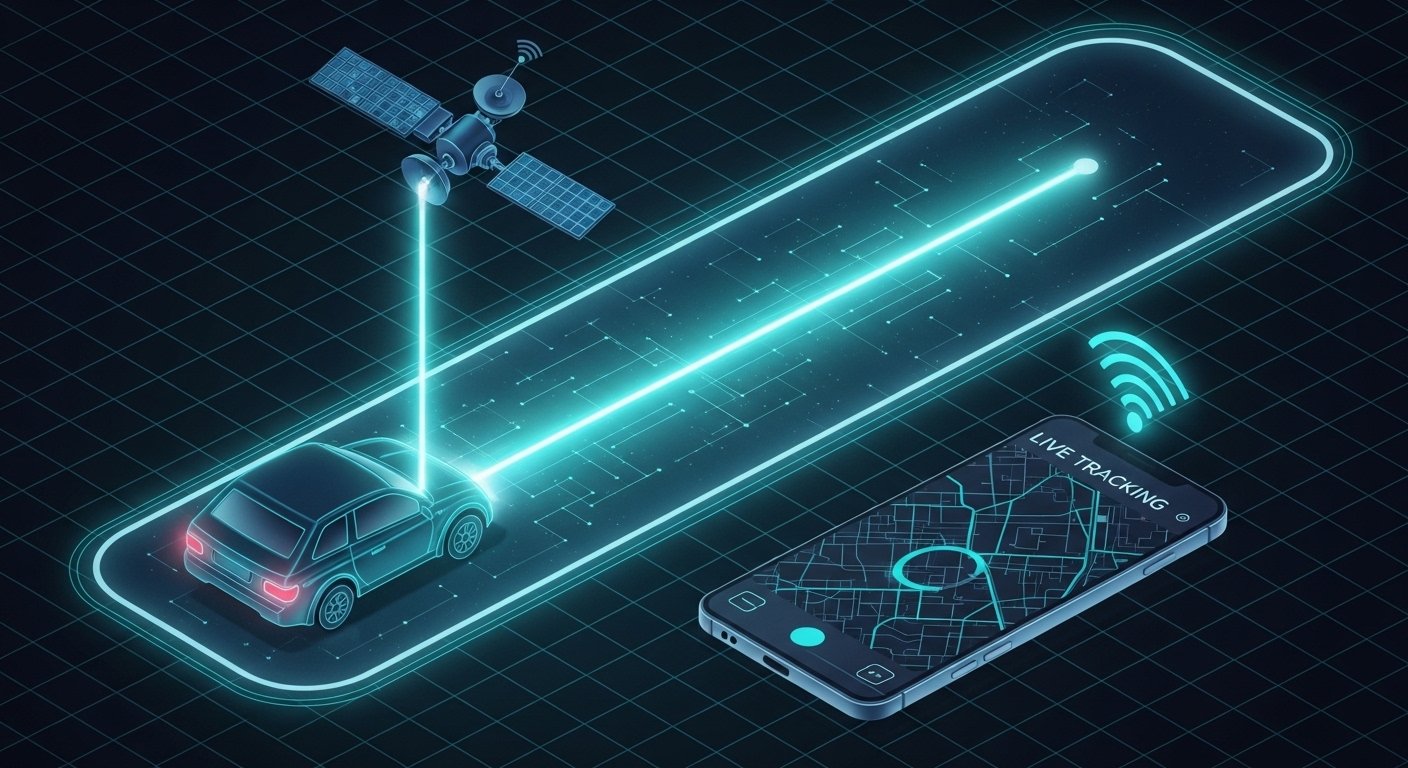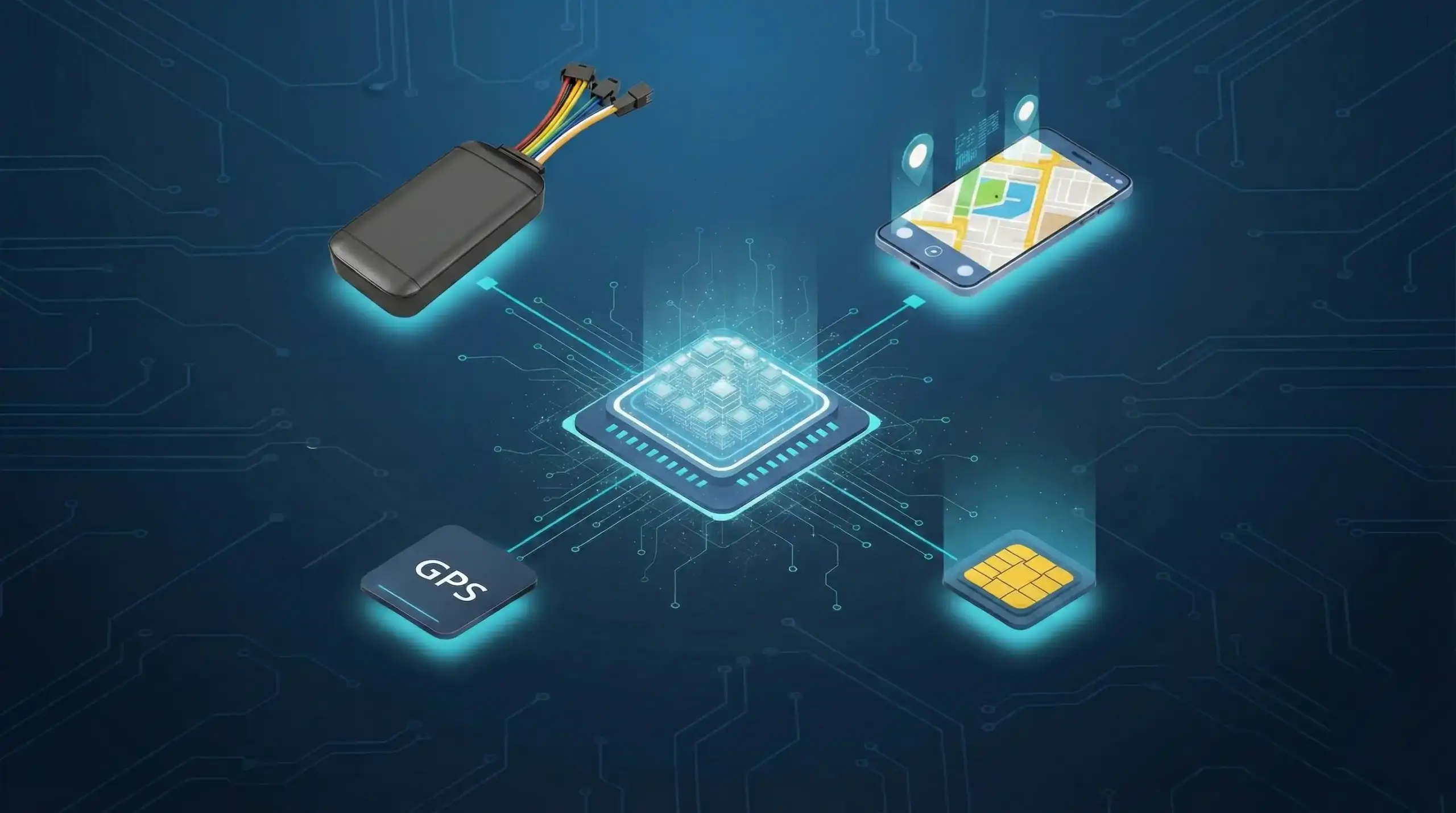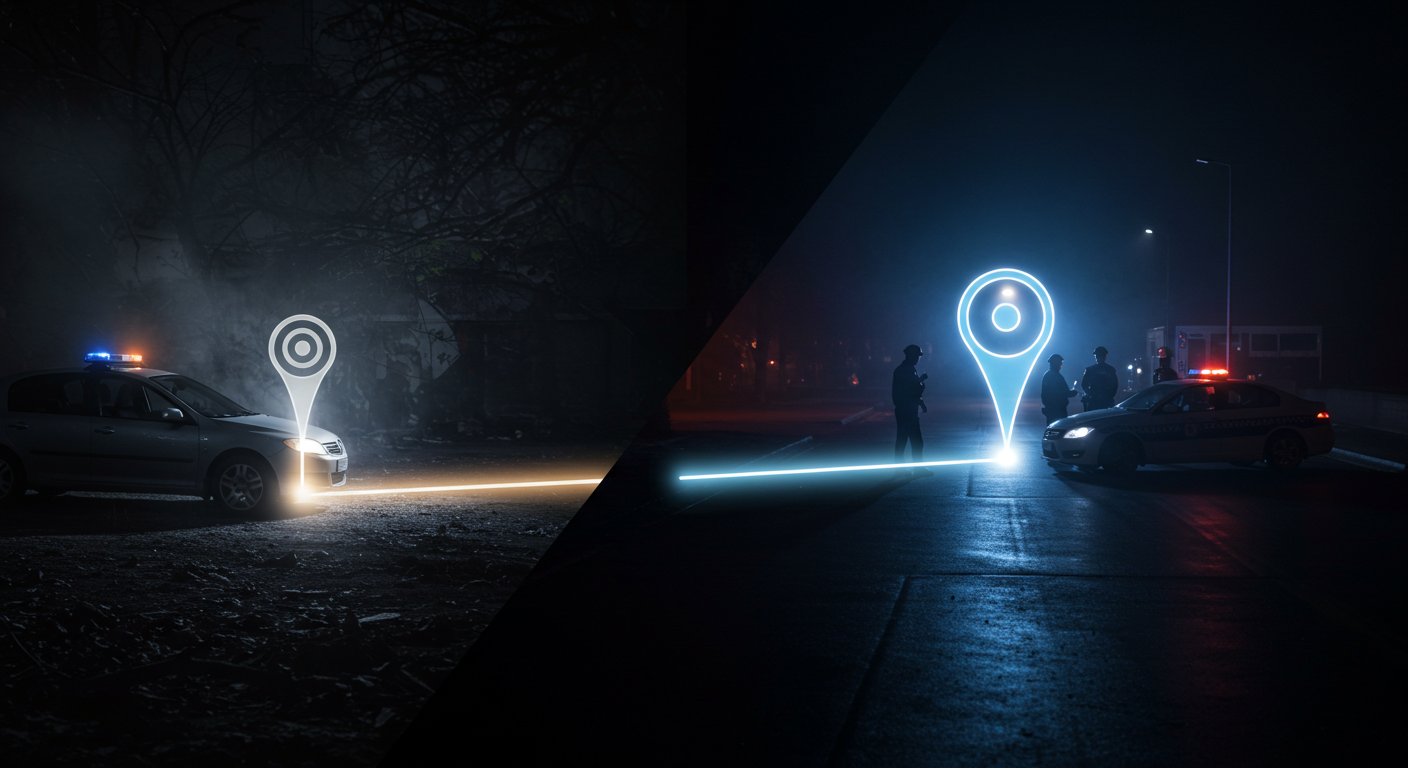Introducción al tratamiento para personas mayores y la tecnología GPS
El tratamiento para personas mayores ofrece un conjunto único de desafíos, especialmente cuando se trata de armonizar la seguridad y la autosuficiencia. A medida que la población mundial envejece, Las familias y los cuidadores buscan progresivamente soluciones innovadoras para garantizar el bienestar de los adultos mayores.. Entre las principales preocupaciones en el tratamiento de personas mayores está el seguimiento de los movimientos y el lugar de las personas mayores., particularmente aquellos con discapacidades cognitivas como demencia o enfermedad de Alzheimer. Estos problemas pueden llevar a que deambulen y obtengan cobertizos., colocando peligros considerables para su seguridad.
En este contexto, La tecnología GPS surge como un dispositivo prometedor, que consta de opciones de seguimiento de médicos generales mejor clasificadas. GPS, o Sistema de colocación global, es un sistema de navegación basado en satélites que proporciona información de lugar y tiempo en cualquier lugar del planeta.. Cuando se utiliza para el tratamiento de personas mayores, Los rastreadores GPS pueden ofrecer monitoreo de lugares en tiempo real, Permitir a los cuidadores monitorear la ubicación de sus seres queridos y reaccionar rápidamente en situaciones de emergencia.. Dispositivos como los rastreadores GPS de Protrack están especialmente diseñados para ayudar en este trabajo crucial., ofreciendo un servicio confiable de seguimiento de médicos generales de Internet de puntos.
Los rastreadores GPS Protrack son pequeños, Dispositivos portátiles que transmiten el lugar del usuario a un sistema de monitoreo principal.. Estos dispositivos se pueden incorporar a dispositivos portátiles como pulseras o colgantes., asegurándose de que estén constantemente con el individuo senior. Para configuraciones a más largo plazo, También se puede considerar un rastreador de médicos generales de cable difícil.. Esta tecnología no sólo ayuda a prevenir eventos relacionados con la deambulación, sino que también brinda seguridad a los cuidadores., Sabiendo que pueden localizar rápidamente a sus seres queridos si es necesario.
Si bien los beneficios del monitoreo por GPS en el tratamiento de personas mayores son evidentes, Es igualmente importante pensar en las ramificaciones éticas.. Preservar el respeto por uno mismo y la privacidad personal de las personas mayores es fundamental. Los rastreadores GPS deben usarse con permiso informado y de una manera que respete la libertad del individuo.. Una interacción clara sobre el propósito y el uso de los dispositivos de monitoreo puede ayudar a lograr este equilibrio..
En general, La tecnología GPS tiene un potencial considerable para mejorar el trato a las personas mayores al abordar las preocupaciones de seguridad y al mismo tiempo mantener la autosuficiencia.. A medida que profundizamos en las diversas aplicaciones y beneficios de los rastreadores GPS Protrack en las siguientes áreas, Queda claro que esta tecnología puede marcar una diferencia significativa en la vida tanto de las personas mayores como de sus cuidadores..
Beneficios del uso de rastreadores GPS Protrack para el tratamiento de personas mayores
El uso de los localizadores GPS Protrack en el tratamiento de personas mayores ofrece una amplia gama de beneficios que mejoran significativamente tanto la seguridad como la garantía. Entre los principales beneficios se encuentra la mayor seguridad para las personas mayores que son susceptibles de deambular o de perderse.. Con monitoreo de lugares en tiempo real, Los cuidadores pueden identificar su ubicación de forma rápida y precisa., Disminuyendo significativamente el momento y el estrés asociados con su localización.. Esta característica por sí sola puede salvar vidas en circunstancias críticas., producción Protrack, un rastreador líder de médicos generales.
Los rastreadores GPS Protrack también brindan una importante garantía para los cuidadores y familiares.. Saber que pueden monitorear el lugar de la persona mayor en tiempo real reduce la preocupación continua por su seguridad.. Esta tecnología, sección frecuente de una red de puntos de la comunidad de seguimiento de médicos generales, permite una mayor autosuficiencia para las personas mayores, ya que pueden moverse más libremente sin dejar de estar bajo una estrecha vigilancia.
Junto con el monitoreo en tiempo real, Los rastreadores GPS Protrack vienen equipados con funciones personalizadas especialmente para el tratamiento de personas mayores.. Los dispositivos suelen contar con interfaces de usuario fáciles de usar y de ejecutar., también para aquellos que pueden no ser técnicamente inteligentes. Esto garantiza que tanto la persona mayor como sus cuidadores puedan utilizar el rastreador de manera eficiente sin estrés ni complicaciones..
Otra característica notable es la larga duración de la batería de los rastreadores GPS Protrack., lo que garantiza un monitoreo continuo sin la necesidad regular de carga. Esta confiabilidad es crucial para preservar una precaución constante.. Además, Muchos dispositivos Protrack incluyen funciones de alerta de situaciones de emergencia., Permitir que la persona mayor envíe una señal de socorro instantánea a sus cuidadores en una situación de emergencia.. Esta función puede resultar especialmente útil en situaciones como caídas o problemas inesperados de salud y bienestar.. Para vehículos utilizados por personas mayores., Un rastreador de médicos generales de cable difícil también puede ofrecer energía continua..
La combinación de estas prestaciones hace que los rastreadores GPS Protrack sean extremadamente adecuados para el tratamiento de personas mayores.. Incorporando tecnología avanzada con un diseño centrado en el usuario., Protrack no sólo mejora la seguridad y la autosuficiencia de las personas mayores, sino que también proporciona a los cuidadores los dispositivos que necesitan para ofrecer el mejor tratamiento posible..
Aplicaciones prácticas y cuentos de éxito
Los rastreadores GPS Protrack han demostrado ser dispositivos importantes para mejorar la calidad del cuidado de las personas mayores.. Una aplicación destacable es la evitación del roaming., una preocupación común para las familias de personas con demencia o enfermedad de Alzheimer. Para las circunstancias, la familia Smith común que antes de usar Protrack, su padre mayor a menudo se alejaba, provocando un enorme estrés y preocupación. Desde que incorporaron el rastreador GPS a su rutina, Tienen la seguridad de saber que pueden localizarlo rápidamente si se cae y sale repentinamente de su casa.. La función de monitoreo en tiempo real les permite configurar notificaciones de geocercas, Notificándoles instantáneamente si se desvía más allá de un área segura predefinida.. Esto convierte a Protrack en un rastreador de médicos generales líder para uso familiar..
En circunstancias de situación de emergencia., Los rastreadores GPS Protrack también han demostrado su eficacia. Consideremos la situación de la señora. Johnson, que vive sola y tiene un fondo de gotas. Su hijo la equipó con un dispositivo Protrack que consiste en un interruptor SOS para situaciones de emergencia.. una noche, Señora. Johnson tuvo una caída y no pudo acceder a su teléfono.. Presionó el interruptor SOS en su rastreador GPS., lo que alertó rápidamente a su hijo y soluciones de situación de emergencia.. La rápida reacción facilitada por el dispositivo Protrack garantizó que la Sra.. Johnson recibió asistencia clínica inmediata, disminuyendo significativamente el riesgo de problemas. Este es un ejemplo claro de un eficiente rastreador de puntos de Internet para médicos generales en el trabajo..
Además, Los rastreadores GPS Protrack han desempeñado un papel fundamental a la hora de fomentar una mayor autosuficiencia entre las personas mayores. Señor. Thompson, un instructor jubilado, aprecia sus paseos cotidianos por la comunidad. Al principio, su familia estaba preocupada por su seguridad debido a su leve discapacidad cognitiva.. Mediante el uso de un rastreador GPS Protrack, pueden monitorear su ubicación sin interferir en su autosuficiencia. Señor. Thompson realmente se siente más positivo al saber que la ayuda es simplemente presionar un interruptor., y su familia realmente se siente segura gracias a la capa de seguridad incluida.. Para circunstancias en las que se prefiere un servicio muy discreto y con alimentación continua., También se puede utilizar un rastreador de médicos generales de cable difícil..
Los cuidadores y familiares han incorporado perfectamente los rastreadores GPS Protrack en sus regímenes diarios.. Muchos cuidadores registran el uso del dispositivo para gestionar sus rutinas de forma más eficiente, sabiendo que pueden rastrear el lugar de la persona mayor desde otra ubicación. Esta integración no solo ha reducido el estrés sino que también ha mejorado la calidad general del tratamiento., Proporcionar un enfoque bien equilibrado para garantizar la seguridad y al mismo tiempo valorar la libertad de las personas mayores..
Implementación de rastreadores GPS Protrack en el tratamiento de personas mayores
La implementación de los rastreadores GPS Protrack en el tratamiento de personas mayores requiere un enfoque metódico para garantizar la eficacia y la comodidad tanto para las personas mayores como para sus cuidadores.. El primer paso es elegir el dispositivo correcto. Protrack ofrece una variedad de opciones de seguimiento de médicos generales de primer nivel personalizadas para diversas necesidades.. Considere factores como la duración de la batería, facilidad de uso, y si el dispositivo es portátil o móvil. Para personas mayores, un peso ligero, Un rastreador fácil de usar suele ser más adecuado., a menudo sirve como una red de seguimiento de puntos para médicos generales.
Una vez que se selecciona el dispositivo apropiado, establecer y configurar el rastreador es el siguiente paso crucial. Comience facturando el dispositivo en su totalidad y siguiendo las instrucciones del fabricante para su activación.. La mayoría de los rastreadores GPS Protrack vienen con una aplicación que debe descargarse e instalarse en un teléfono móvil o sistema informático.. Esta aplicación permite a los cuidadores controlar el lugar y el estado del rastreador en tiempo real.. Configure las configuraciones para configurar notificaciones para geocercas, que informa a los cuidadores si la persona mayor caída abandona un área segura predefinida, y asegurarse de que los números de contacto para situaciones de emergencia estén configurados correctamente. Para dispositivos que sirven como un difícil rastreador de médicos generales por cable, Garantiza una instalación profesional para obtener energía continua y un procedimiento confiable..
Es importante asegurarse de que la persona mayor se ajuste al rastreador GPS.. Presentar el dispositivo lentamente, discutiendo su propósito y mostrando sus funciones. Algunas personas mayores pueden resistirse al principio a llevar un rastreador, así que resalte la seguridad y la autosuficiencia que proporciona.. Inspeccione periódicamente el estado y la comodidad del dispositivo., especialmente si se usa como brazalete o colgante.
Solucionar problemas comunes pertenece a preservar el rastreador GPS Protrack. Inspeccione periódicamente el dispositivo en busca de actualizaciones de software., asegúrese de que esté facturado, y probar su funcionalidad periódicamente. Si ocurren problemas, consulte el manual del usuario o comuníquese con el servicio de atención al cliente de Protrack para obtener ayuda., particularmente para funciones avanzadas de seguimiento de médicos generales de Internet de puntos.
Abordar posibles preocupaciones, como problemas de privacidad personal, es esencial. Asegure a la persona mayor y a su familia que el propósito principal del rastreador GPS es la seguridad.. Los dispositivos Protrack están diseñados teniendo en cuenta la seguridad de la información, garantizar que la información individual esté protegida. Discuta y obtenga permiso de la persona mayor antes de usar el rastreador para respetar su libertad y privacidad personal..
Siguiendo estos estándares, Los cuidadores pueden implementar eficazmente los rastreadores GPS Protrack., mejorar la seguridad y el bienestar de las personas mayores y al mismo tiempo brindar seguridad a sus familias.









